Egypt, Sudan reject Ethiopia's proposal for sharing data on controversial dam
Egypt and Sudan have rejected an offer by neighboring Ethiopia to share data on the operations of its giant hydropower dam on the Blue Nile after negotiations between the three countries in Kinshasa this week ended without progress.
The massive Grand Ethiopian Renaissance Dam (GERD) has been a source of concern for both Egypt and Sudan, with the former fearing it will imperil its supply from the Nile, and the latter fearing GERD will decrease its own water flows.
Ethiopia considers the mega-dam crucial for its electrification and economic development, and has said it would continue filling the dam's massive reservoir during the upcoming rainy season.
“Ethiopia invites Sudan and Egypt to nominate dam operators for data exchange before the filling of GERD in upcoming rainy seasons,” which normally begins in June or July, the Ethiopian Foreign Ministry wrote in a tweet on Saturday.
“As construction progresses, filling takes place,” Ethiopian Water Minister Seleshi Bekele told a press conference on Wednesday.
He played down the possibility that tensions over the dam would lead to war, after Egypt’s President Abdel Fattah el-Sisi threatened Ethiopia with potential war over the contested dam.
“I tell our Ethiopian brothers -- don't touch a drop of Egypt's water, because all options are open,” Sisi said on Wednesday, reiterating comments he made last week, warning that the region faces “unimaginable instability” over the project.
Seleshi hit back, saying, “This kind of thinking is unnecessary, and exaggerating this kind of thing doesn't benefit any country.”
Ethiopia's Foreign Ministry said on Tuesday that Addis Ababa expected trilateral talks to resume later this month.
Sudan echoed Egypt's remarks with similar warnings, saying Khartoum was ready to harden its stance in the dam dispute and lobby afresh at the highest international levels.
Sudan's Foreign Minister, Mariam al-Sadiq al-Mahdi, told reporters on Tuesday that Ethiopia “threatens the people of the Nile basin, and Sudan directly.”
“For Sudan, all options are possible, including returning (the matter) to the UN Security Council and hardening policy,” Yasser Abbas, Sudan's Irrigation Minister, warned on Wednesday.
Several rounds of negotiations among the three countries to resolve the dispute over the dam have reached a deadlock.
The dam is located approximately 600 kilometers north west of the Ethiopian capital Addis Ababa, in the region of Benishangul-Gumaz along the Blue Nile and is the largest of its kind in Africa with 1,800 meters length, 145 meters height and a total volume of 74,000 million cubic meters.
Ethiopia began filling the dam’s reservoir last year. It announced in July 2020 that it had impounded enough water in GERD to test its first two turbines to generate electric power, an important milestone on the way towards implementing the project.
Addis Ababa’s goal is to produce 6,450 MW hydropower energy to relieve Ethiopia's hurting energy sector and for electricity exports to neighboring countries.
Iran among top nuclear technology countries: AEOI chief
Democrats 'risk losing' election for backing Israeli war on Gaza, Lebanon: US journalist
Protesters remove busts of Israel's first president from Manchester Univ.
VIDEO | Hezbollah drones
US involvement in Israel’s 'regional war' unconstitutional, lawmakers tell Biden
107 years of Balfour Declaration that paved way for extermination of Palestinians
Hezbollah strikes Israeli military base near Tel Aviv
Palestinian media rights group condemns killing of two journalists by Israel


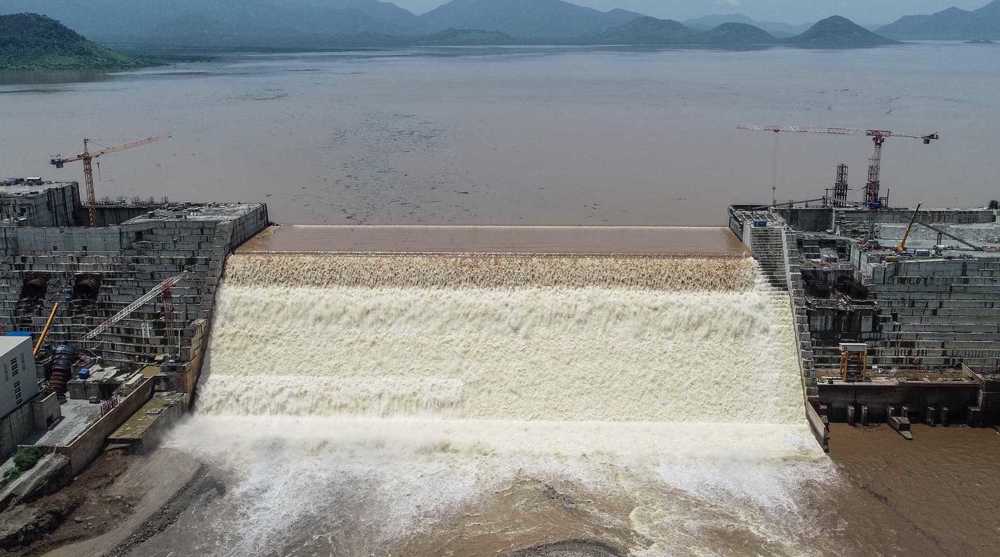
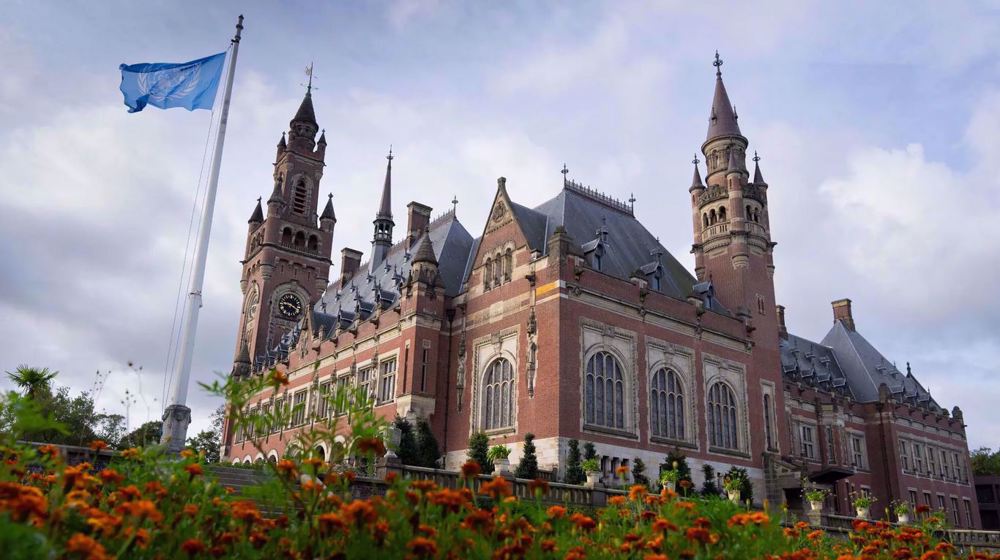

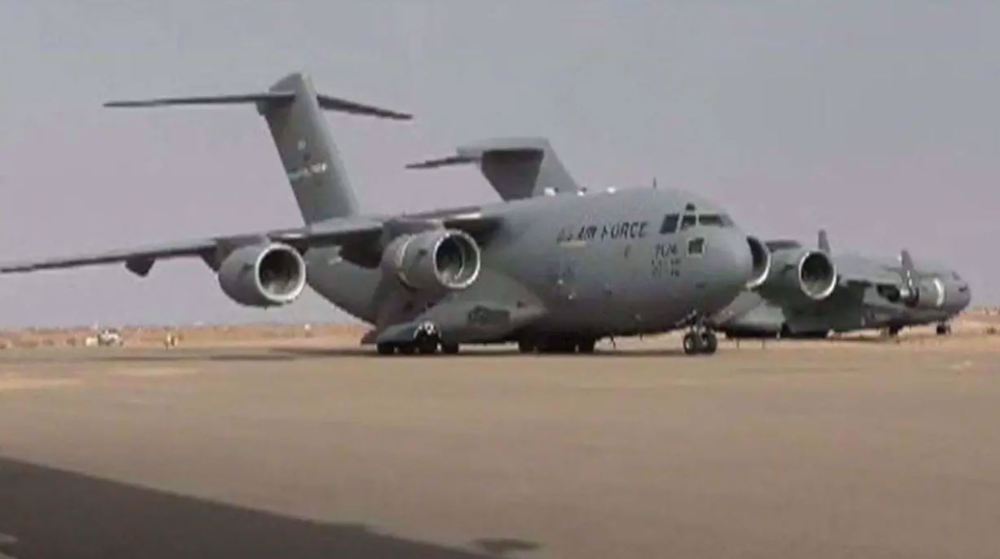



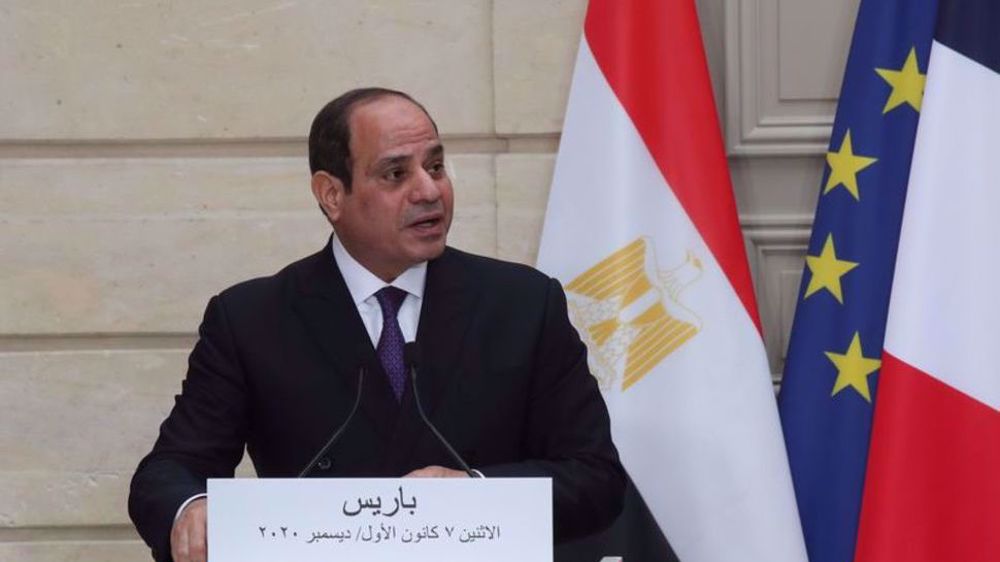
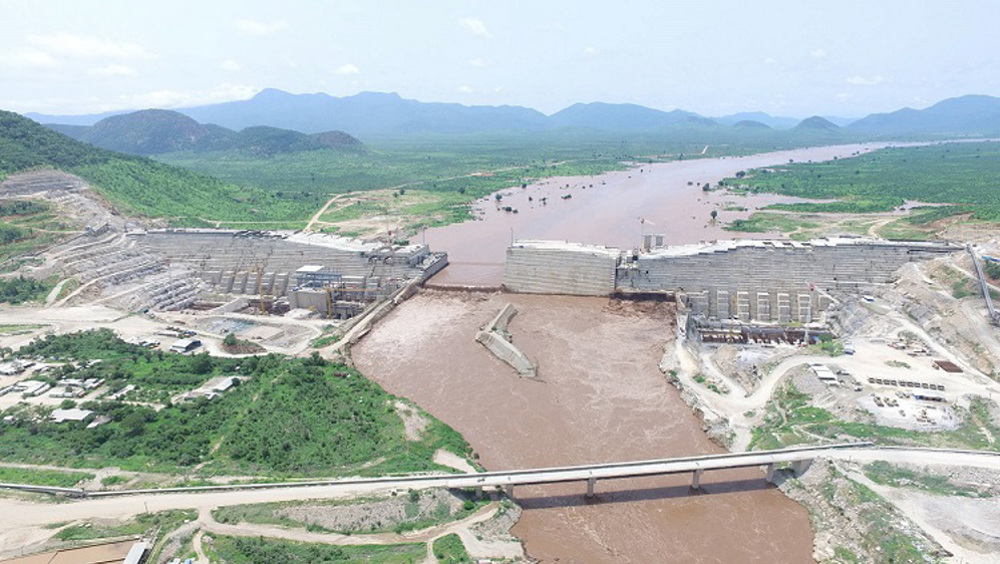

 This makes it easy to access the Press TV website
This makes it easy to access the Press TV website